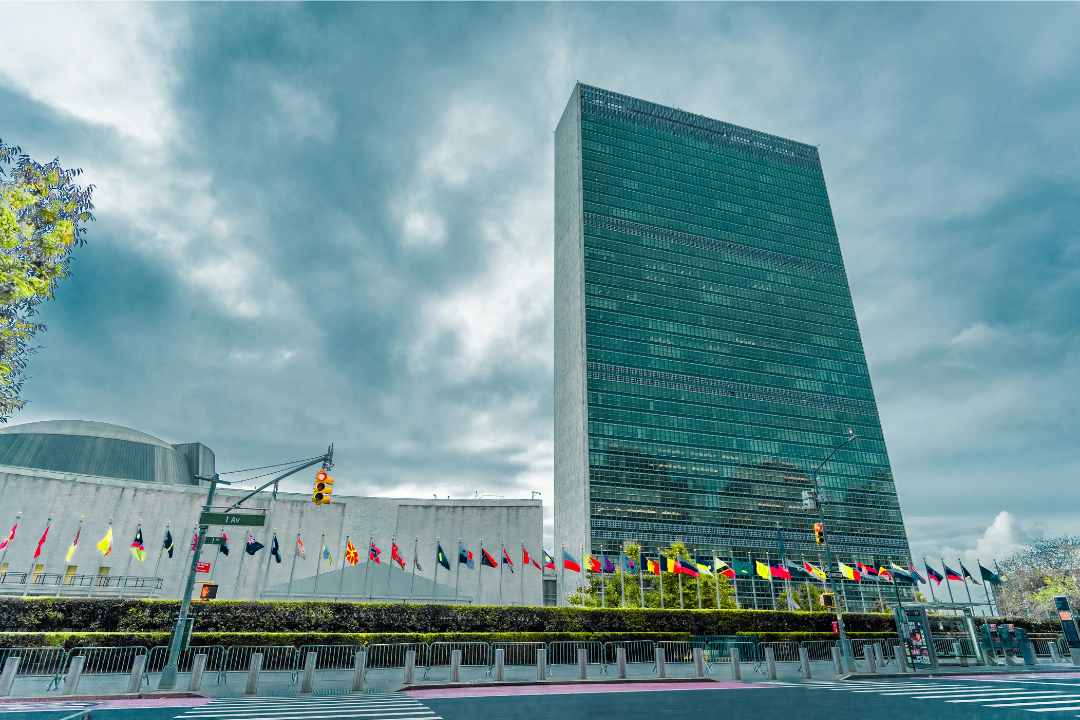Earlier this year, the United States announced its withdrawal from the World Health Organization, the withholding of funds destined for the UN Human Rights Council under the United Nations’ (“UN”) Regular Budget, and a review of US contributions to all international organizations (“IOs” or “organizations”). Given the importance of US contributions, these announcements raise questions about IOs’ autonomy and the connection of IOs’ autonomy to their international legal personality. But why is the concept of autonomy important for the law of IOs? And what arises from saying that an IO is an autonomous subject of public international law?
Key Aspects of Autonomy: Multi-dimensional and Gradual
The term autonomy is often used by legal scholars to discuss the international legal personality of IOs. For an organization to enjoy legal personality, at least one of its organs ought to have “a will of its own”, “der eigene Wille”, in German, or “la volonté distinct”, in French (Schermers and Blokker, pp. 41 and 48).
Much as the concept of sovereignty as a criterion for statehood, the concept of autonomy is used as a criterion for the analysis of subjectivity of IOs (Bordin, p. 77). It is a common attribute of all organizations that are considered subjects of international law (Klabbers, Peters and Ulfstein, p. 208).
There are different attempts to define the concept of autonomy of IOs. E.g., while Jean d’Aspremont emphasized the “ability of the organization to behave as an independent member of the international community to which it belongs” (Collins and White, p. 64), Tarcisio Gazzini puts in perspective the relationship between the organization and its members. According to Gazzini, “autonomy describes the extent to which the members of the organization can influence its functioning or even prevent it from functioning” (Collins and White, p. 200).
There are two aspects crucial to understanding the concept of autonomy. First, autonomy is a multi-dimensional concept. One can talk about judicial, political, legislative, administrative, financial, and many other dimensions of autonomy. All these different aspects of autonomy also influence each other and, ultimately, the overall degree of autonomy of any organization. Second, autonomy is not a binary concept. Autonomy is a matter of degree: different organizations enjoy different degrees of autonomy, some higher, some lower. The International Court of Justice also contributes to that view, mentioning a “certain autonomy” that IOs should enjoy as a result of their constituent instruments (para. 19).
Dual Role of States in IO’s Autonomy
Autonomy, based on the degree of independence that the organization has in relation to its members, is difficult to measure. Challenges arise precisely because of the dual role played by States in the organizational legal order: on the one hand, they are the creators of the organization and addressees of its norms, and on the other, they are part of the decision-making structure of the same organizations, whose decisions they are supposed to abide by.
An easier way to understand this power struggle is viewing it as a seesaw in which on one side sits the autonomy of the organization, and on the other, the member’s control over that same organization. When the organization gains autonomy, members inevitably lose control of its creation and are left with their feet hanging. Klabbers rightly says that the “price” for autonomy is “control”, and that is the reason why “there is a tremendous tug of war going on between these two desiderata of autonomy and control” (Collins and White, p. 122).
Voluntary Contributions Restraining IO’s Autonomy?
IOs rely heavily on their member States as a source of income. Member States’ contributions to IOs fall into two main categories: (i) assessed contributions, which the member States are legally obliged to pay in accordance with the IO’s legal framework, and (ii) voluntary contributions, which is paid to the IO’s by member States, and other entities like other OIs, foundations, private companies and natural persons (see the examples of UNESCO and WHO), without the legal obligation to do so (Schermers and Blokker, p. 657).
Due to the risks carried by a higher portion of voluntary contributions in an organization’s budget, a lot has been discussed about the right balance between assessed and voluntary contributions. If a member State does not (fully) comply with its assessed contribution, legal consequences vary from “loss of voting rights, (…) loss of eligibility for election to non-plenary organs, loss of membership or the availability of a Court judgment” (Schermers and Blokker, p. 684). Not paying voluntary contributions, however, has no legal consequence.
In 2007, the UN Joint Inspection Unit (JIU) issued a report on voluntary contributions to UN organizations. It found that IOs suffer serious risks of an abrupt decrease in funding from voluntary contributions, since member States are not obliged to pay (para. 31). The report further recognizes “the potential for voluntary contributions to distort programme priorities – or even mandates” (para. 40), given the increasing dependency on voluntary contributions in some studied IOs.
Besides, donors of voluntary contributions often “expect to exert influence on the operation of the organization” (Cogan, Hurd and Johnstone, p. 911). Sometimes, IOs and donors even conclude agreements that include establishing reporting and monitoring frameworks (ibid.). Donors’ privileges might also be implicit: As Cogan points out, given the US’ share in voluntary contributions to UNICEF, “it is no mistake […] that the head of UNICEF is always a US national” (ibid.).
Hence, IOs with a higher percentage of voluntary contribution tend to enjoy a lower level of autonomy compared to IOs whose budget is composed mainly of assessed contributions.
Decision-Making, Autonomy and the UN Budget
But what criteria of autonomy are embedded in the institutional design and practices of organizations? Legal scholars tend to agree that the power to approve decisions by a majority vote is a strong indicator of an IO’s political autonomy (Collins and White, p. 203). Unanimity, in contrast to majority, mirrors only the will of individual members and not that of the IO.
Additionally, some scholars argue that the decisions issued by a majority must be legally binding for the organization to be considered autonomous. If the IO is not able to normatively impose its will on its members, there is no autonomy (Klabbers, p. 49; Collins and White, p. 203).
One of the few binding decisions that the UN General Assembly can take is regarding the consideration and approval of the budget. That decision is taken by “two-thirds of majority of the members present and voting” (Article 18.2 UN Charter). The fact that this decision is taken by majority and that it is a legally binding decision is a clear sign that the UN enjoys at least a certain degree of autonomy.
However, the balance of power and political influence in the budget process is far more complex than a majority vote in the General Assembly. Organs such as the Advisory Committee on Administrative and Budgetary Questions (ACABQ) and the Committee for Programme and Coordination (CPC) have a huge impact on budgetary decisions. The CPC, for example, formalised its practice to reach decisions by consensus in 1986, after the US announced to withhold part of its assessed contribution to the UN until the CPC “adopted procedures that grant to each member voting rights on matters of budget”.
Consensus entails the attempt to find a common position among the stakeholders to reach decisions without defeated votes. That is different from unanimity, which entails the necessity of the positive vote, or abstention, of every stakeholder to approve a given decision. Reaching a decision by consensus is therefore less detrimental to an organization’s autonomy than the requirement of unanimity. Even so, the requirement of consensus in the CPC process shows that the apparent autonomy evidenced by Article 18.2 is more complex than it seems.
A Limit to the Concept of Autonomy and IO’s Legal Personality
Even if, at times, a given IO is considered to have a low degree of autonomy, it does not necessarily mean that the IO is devoid of legal personality. Autonomy does not mean absolute independence or self-sufficiency. As autonomy is a gradual concept, certain degrees, even of lower autonomy, can be tolerated for legal purposes.
Here, it is helpful to draw a parallel between autonomy and sovereignty. As seen above, autonomy has virtually the same importance for attributing legal personality to IOs as sovereignty does for States, with Anne Peters, for example, considering “[a]utonomy as a proxy for sovereignty” (Klabbers, Peters and Ulfstein, p. 208) in constitutionalist debates.
Following that line of thought, if there are a vast number of States that are financially and/or politically dependent on others and are still considered equally sovereign and possessing international legal personality in the eyes of public international law, the same rationale should be applied for IOs.
The degree of autonomy of an IO is essential for the attribution of legal personality. However, IOs may present a lower or higher degree of autonomy over the course of time without this interfering with their international legal personality.
Conclusion
In conclusion, although the recent US announcements have a profound impact on the ability of the UN and other IOs to function properly, it does not necessarily affect their standing as autonomous entities with international legal personalities. This tug-of-war between autonomy and control reveals the delicate balance IOs must navigate to ensure their survival.
Autonomy is the defining attribute that enables international organizations to act as distinct legal subjects under public international law. While its degree fluctuates with political and financial pressures, it remains essential for safeguarding an organization’s independent will.
It is imperative for the international community to critically evaluate and fortify the mechanisms that support the autonomy of international organization, ensuring they can effectively fulfil their mandates without compromising their multilateral values.

Lucas Nunes is an attorney specialized in Public International Law and the Law of International Organizations (IGOs). He obtained an LL.M. summa cum laude from the Goethe University Frankfurt and an LLB from the Federal University of the State of Rio de Janeiro (UNIRIO).
